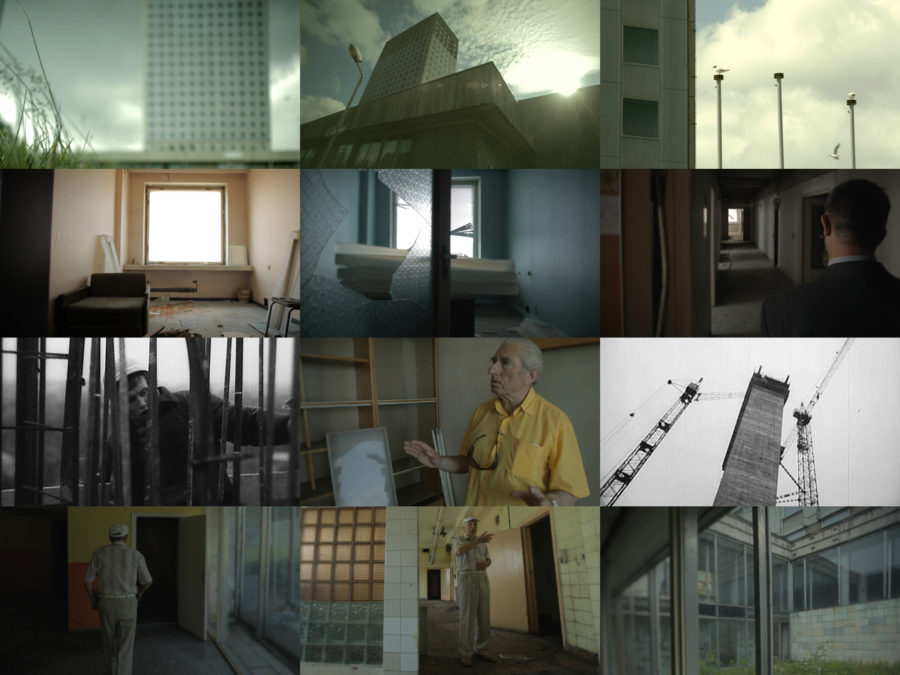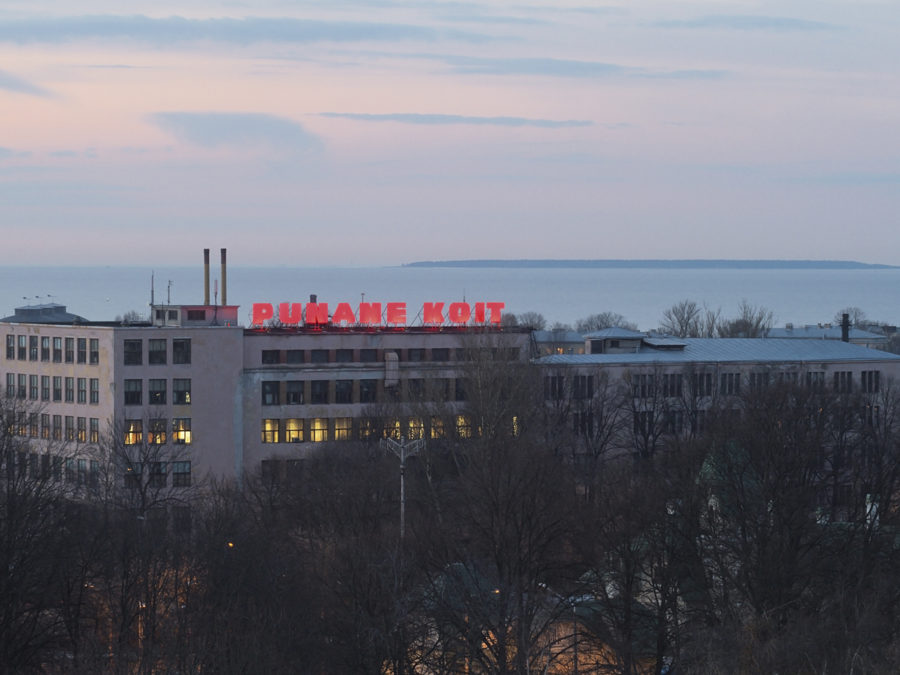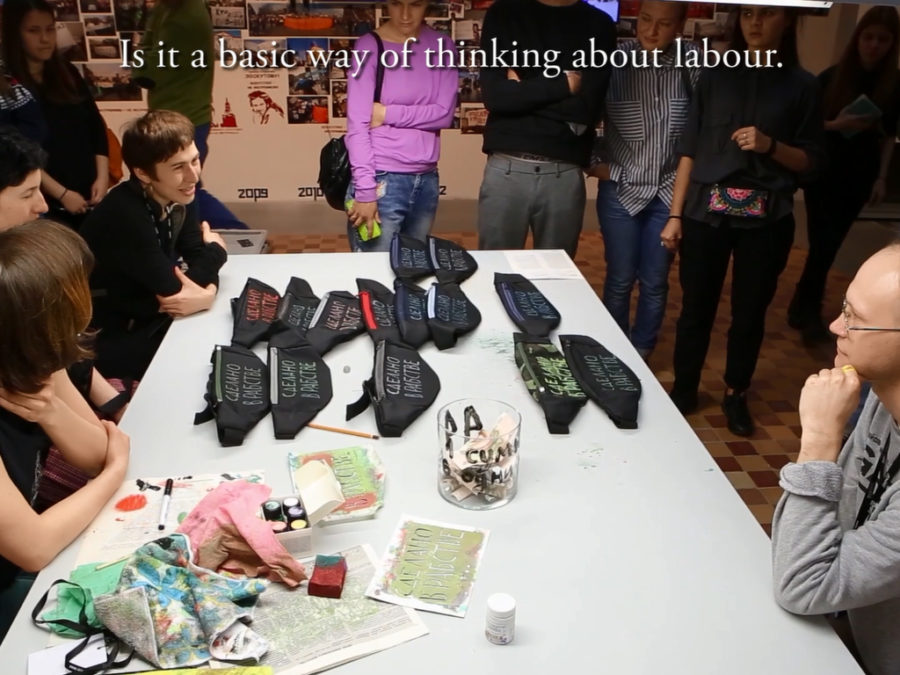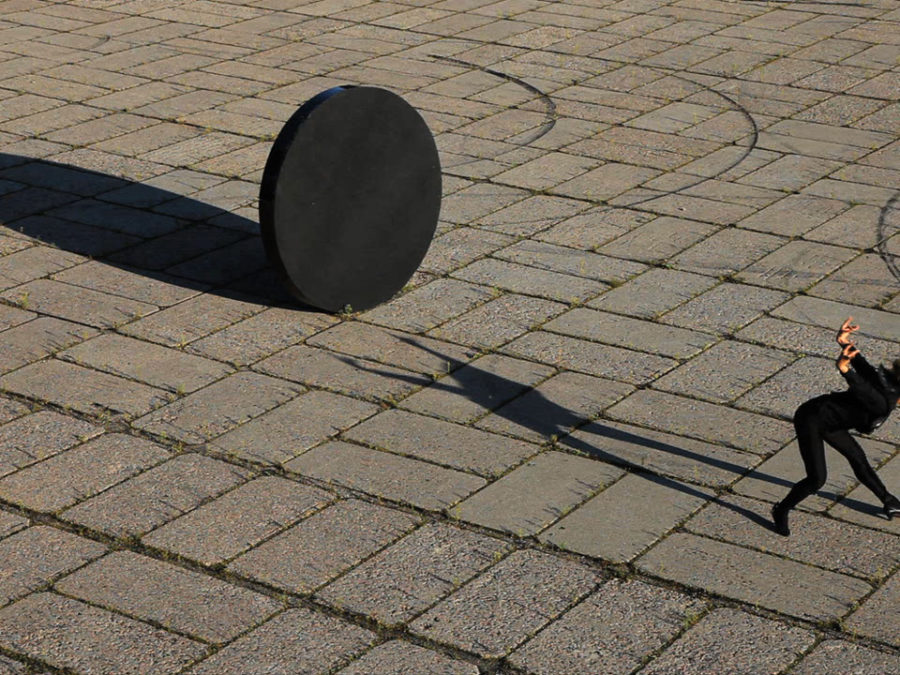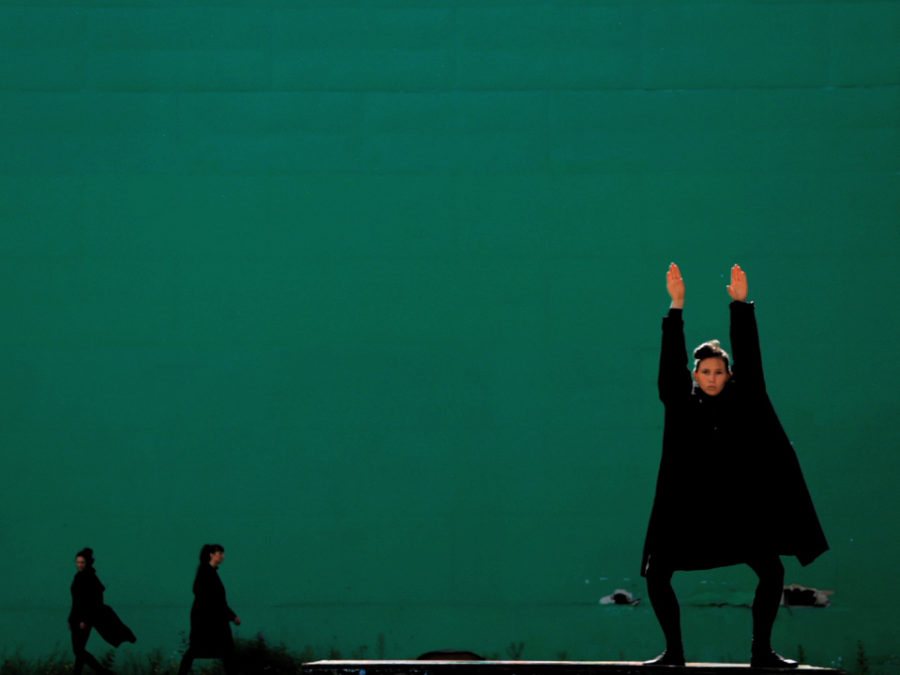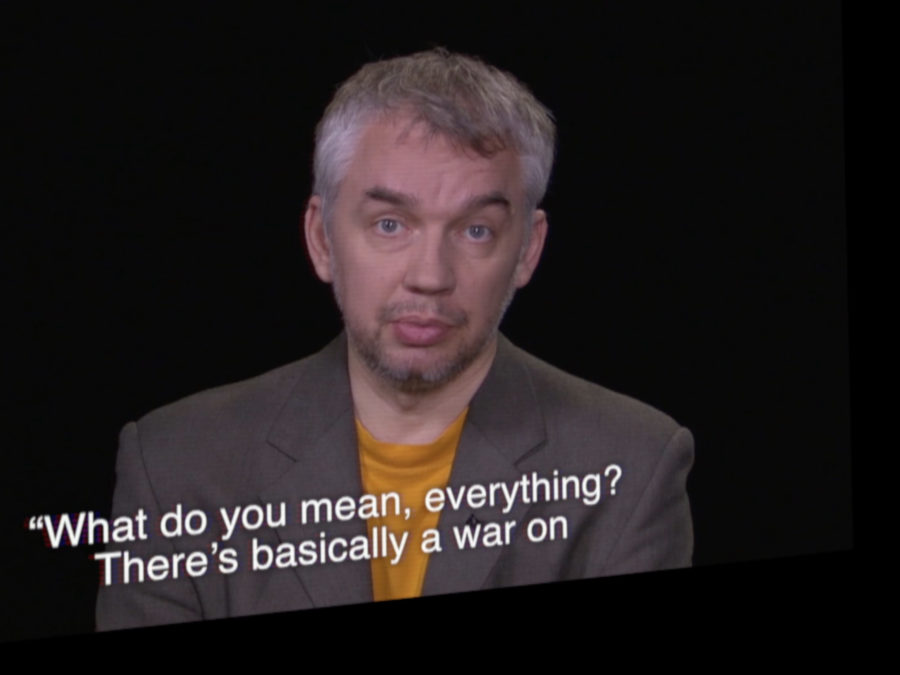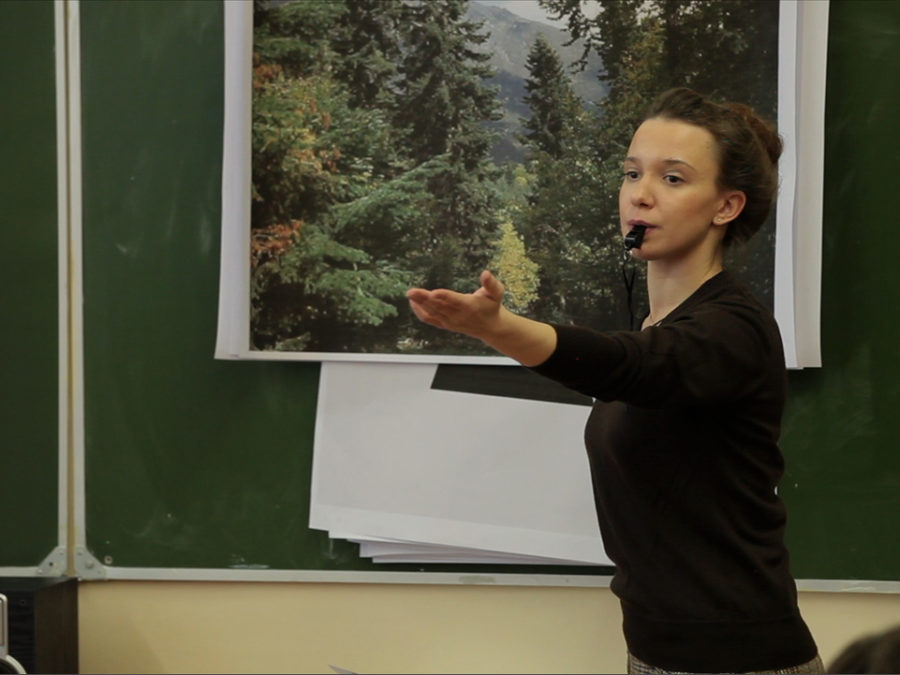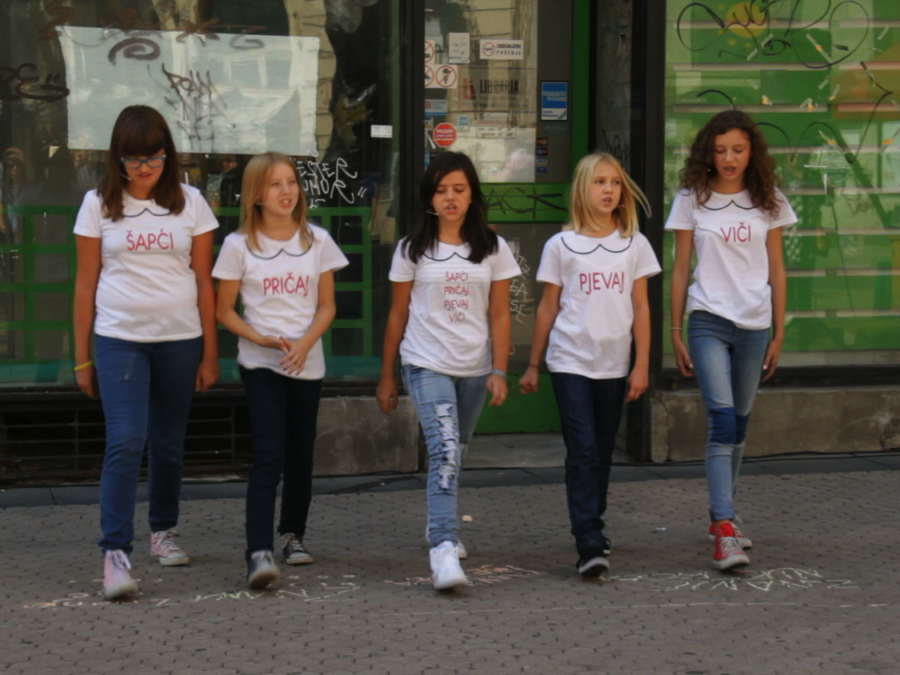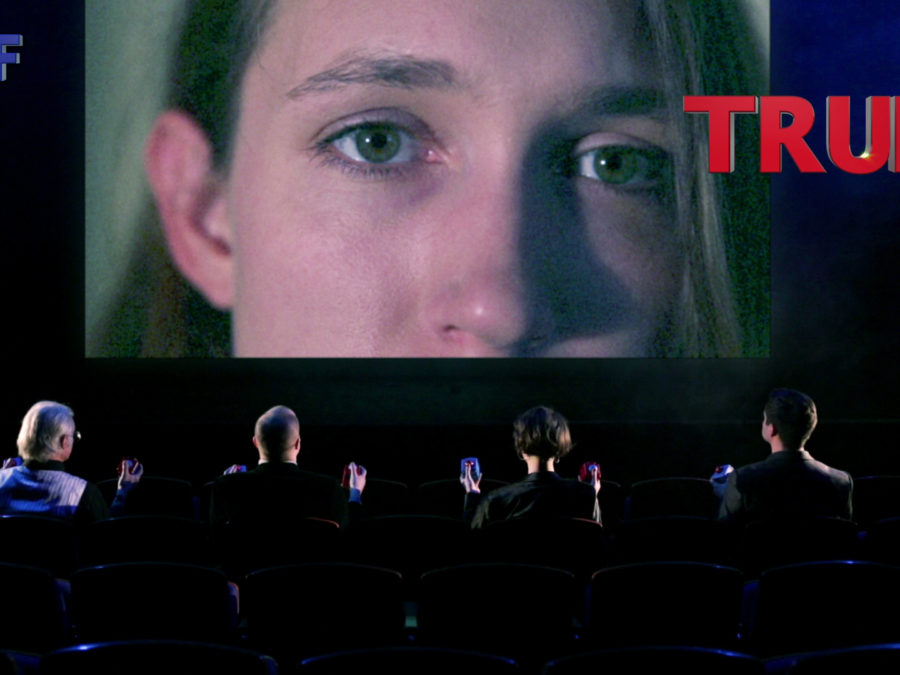Press House is a twenty-two story building in Riga, built in 1978 to host different publishing houses, editorial offices of newspapers and magazines, as well as a printing house. Left abandoned since regime change due to dwindling profitability, Press House was once an important place where its workers were constantly negotiating the freedom of the press with the boundaries of censorship.
The artist’s interest in Press House starts with the people who once worked there. As either complicit in or terrorized by censorship, they spent an impressive part of their lives on site. Neiburga has very special personal memories of the building since both of her parents worked there. During her school years, she edited her school’s newspaper Glasses, which was printed in Press House under the supervision of poetess and publisher of children’s books, Inese Zandere.
Her children’s playground was the café filled with cigarette smoke, the huge elevators, the seemingly infinite stairs, and the labyrinth of rooms. The artist has involved numerous former Press House employees in the project, from the concierge to the director and managing editors of its magazines and newspapers. Their stories restore the feel and look of bygone days. The work weaves a poetic documentary narrative of the memories concealed in the minds of people and the abandoned building. A slowly moving camera explores spaces abandoned long ago while it encounters people who once worked there.
Katrīna Neiburga has always been interested in anthropology and history, which informed her early projects. These were based, for example, in her working as a taxi driver, or later interviewing the participants in an allotment garden community and male garage cooperative in the outskirts of Riga. She creates installations, video and light projections, scenography, as well as videos, as artistic projects and on commission for operas and theater productions. Since 2000 she has actively participated in exhibitions in Latvia and abroad. In 2009, Neiburga was the first recipient of the Purvītis Prize in Latvia. She represented Latvia at the 56th Venice with the project ARMPIT in collaboration with Andris Eglītis. She has also taken part in the Kochi-Muziris Biennale (2017) as well as in the Riga International Biennial of Contemporary Art (2018).
